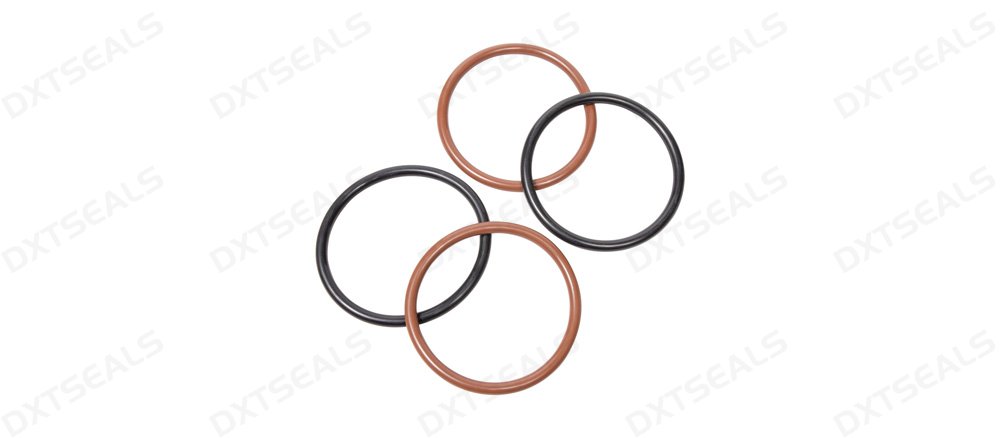
Hydraulic systems are critical in a wide range of industries, from construction and automotive to manufacturing and aerospace. For these systems to function efficiently, reliable sealing solutions are essential. Nitrile Rubber (NBR) seals are among the most widely used materials in hydraulic systems due to their excellent properties and performance. In this article, we will explore the benefits of using NBR seals in hydraulic systems and why they are a go-to choice for many engineers.
1. What is Nitrile Rubber (NBR)?
Nitrile Rubber, also known as Buna-N or NBR, is a synthetic rubber copolymer made from acrylonitrile and butadiene. It is renowned for its outstanding resistance to oils, fuels, and other chemicals, which makes it ideal for sealing applications in hydraulic systems.
2. Key Benefits of NBR Seals in Hydraulic Systems
Oil Resistance: One of the primary reasons NBR is favored in hydraulic systems is its excellent resistance to oil, fuel, and other petroleum-based fluids. In hydraulic systems where oil is the primary working fluid, NBR seals prevent leaks and contamination, ensuring efficient system operation.
Durability and Wear Resistance: Hydraulic systems often operate under high pressure and in harsh conditions. NBR seals are designed to withstand abrasion, mechanical stress, and repeated cycles of compression and decompression. This durability ensures that the seals last longer, reducing the need for frequent replacements.
Temperature Tolerance: NBR seals offer good performance within a wide temperature range, typically between -40°C to +120°C (-40°F to +248°F). This makes them suitable for hydraulic systems operating in both low and moderate temperature environments, ensuring the seals maintain their integrity under varying conditions.
Cost-Effectiveness: NBR seals provide an affordable sealing solution without compromising performance. Compared to other sealing materials like fluorocarbon rubber (FKM), NBR is more cost-effective, making it a popular choice in industries that prioritize both efficiency and budget.
Pressure Handling: NBR seals are designed to handle high-pressure environments, which are common in hydraulic systems. They can withstand the pressure fluctuations and mechanical stress associated with hydraulic fluid flow, maintaining a tight seal and preventing leaks.
3. Applications of NBR Seals in Hydraulic Systems
NBR seals are used in a variety of hydraulic applications, including:
Hydraulic Cylinders: NBR seals are commonly used in hydraulic cylinder pistons and rods to ensure efficient movement and prevent fluid leakage. Their flexibility and durability make them ideal for dynamic sealing applications.
Pumps and Valves: In hydraulic pumps and valves, NBR seals help maintain fluid pressure and control the flow of hydraulic oil, ensuring that the system operates smoothly and efficiently.
Hose Connections: NBR seals are used in hose fittings and connectors to create a leak-proof seal, ensuring hydraulic fluid does not escape during operation.
4. Why Choose NBR Seals for Hydraulic Systems?
NBR seals offer several key advantages that make them suitable for hydraulic systems:
Superior Oil Resistance: NBR's ability to resist oil and fuels makes it a top choice for hydraulic applications that rely on oil-based fluids.
Long Service Life: NBR seals' durability and resistance to wear and tear ensure they have a longer service life, reducing downtime and maintenance costs.
Temperature Versatility: NBR seals perform reliably in a wide range of temperatures, making them ideal for hydraulic systems operating in diverse environments.
Customizability: NBR seals can be easily customized to fit specific hydraulic applications, ensuring optimal performance and a precise fit in various components.
5. Limitations of NBR Seals
While NBR seals offer many benefits, it is important to note that they have some limitations:
Limited High-Temperature Resistance: NBR seals may not perform well in extremely high-temperature environments, such as those above +120°C (+248°F). For applications requiring higher temperature resistance, materials like FKM or silicone may be more suitable.
Chemical Resistance: Although NBR seals are resistant to oils and fuels, they may not be suitable for sealing applications involving aggressive chemicals such as strong acids or bases. In such cases, seals made from PTFE or FKM would be more appropriate.
6. Conclusion
NBR seals are a reliable and cost-effective solution for hydraulic systems, offering excellent oil resistance, durability, and pressure handling capabilities. Their ability to perform under various temperatures and conditions makes them a top choice in many industries. By choosing the right NBR seals for your hydraulic system, you can ensure optimal performance, prevent fluid leaks, and extend the lifespan of your equipment.
